by Naomi L. | December 24, 2014 | Blog, Creative Writing |
Merry Christmas Eve! It’s that time of year again, and what better way for writers to celebrate than indulging in some classic Christmas stories? Continuing from my review of Treasury of Christmas Tales, here’s a list of five Christmas-themed stories I enjoyed in my childhood. Enjoy, and have a very Merry Christmas!
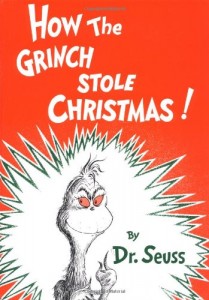 1) How The Grinch Stole Christmas! by Dr. Seuss
1) How The Grinch Stole Christmas! by Dr. Seuss
How The Grinch Stole Christmas! is by far one of my all-time favorite Christmas books, which I’ve already made clear in the review I wrote of it last year. Dr. Seuss’s classic tale of the grumpy Grinch’s quest to ruin Christmas for the happy Whos and his discovery of the true Christmas spirit never fails to warm my heart whenever I read it. We even had the TV special on VHS to watch whenever we felt like indulging in some holiday entertainment with Seuss’s beloved characters. The Grinch is a fun story for children and adults alike, and we love it to this day!
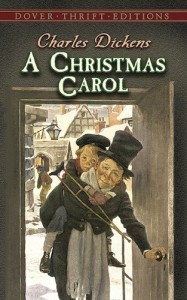 2) A Christmas Carol by Charles Dickens
2) A Christmas Carol by Charles Dickens
Who doesn’t think of A Christmas Carol when remembering favorite Christmas tales? Reprinted and adapted multiple times since its first publication in 1843, Charles Dickens’ tale of holiday-hating miser Ebenezer Scrooge and his change of heart after an encounter with the Ghosts of Christmas may be one of the most famous and influential Christmas books ever written. I had read and watched quite a few adaptations for children when I was a kid, so to this day I remember it as a Christmas favorite!
3) The Nutcracker by E. T. A. Hoffman
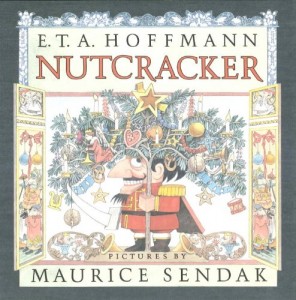 Officially titled The Nutcracker and the Mouse King, the German fairy tale of the toy prince and the little girl who loved him is one that I remember fondly from my childhood, as my mom would read it to us when we were little. Aside from an adapted children’s book, we also had a couple of Nutcracker figures that we’d put out every December with the rest of our Christmas decorations (coincidentally, one of them eventually got a broken jaw, just like the Nutcracker in the story). Though there may not be much to tie this story to the season other than the fact that it takes place around Christmas, I still like to keep The Nutcracker on my list of holiday classics!
Officially titled The Nutcracker and the Mouse King, the German fairy tale of the toy prince and the little girl who loved him is one that I remember fondly from my childhood, as my mom would read it to us when we were little. Aside from an adapted children’s book, we also had a couple of Nutcracker figures that we’d put out every December with the rest of our Christmas decorations (coincidentally, one of them eventually got a broken jaw, just like the Nutcracker in the story). Though there may not be much to tie this story to the season other than the fact that it takes place around Christmas, I still like to keep The Nutcracker on my list of holiday classics!
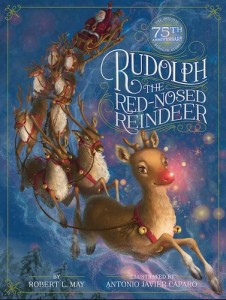 4) Rudolph the Red-Nosed Reindeer by Robert Lewis May
4) Rudolph the Red-Nosed Reindeer by Robert Lewis May
Why not add a little music to the list? Since its first publication in 1939, Rudolph the Red-Nosed Reindeer has been a common favorite Christmas story among children, and an even more popular song. I have fond memories of singing the background chant version with my sisters (“Like a lightbulb!”), sometimes for the whole family to watch during our annual Christmas presentations. Maybe this tale spoke to me for its message about being loved for what makes you special, or maybe the song was just that catchy, but either way, Rudolph has always been a holiday favorite of mine!
5) The Nativity of Jesus (a.k.a. “The Original Christmas Story”)

“Adoration of the Shepherds” (Gerard van Honthorst, 1622)
With all the consumerism and stress surrounding the holidays, it’s easy to forget why Christmas is celebrated in the first place. That’s why the birth of Jesus is always on my list of favorite Christmas stories: without it, none of the others would exist! Chronological inaccuracies aside, I’ve always considered the account of Christ’s birth to be an uplifting tale that’s worth remembering every time Christmas comes around. I love spiritual and holiday stories alike, so the nativity of Jesus may very well be my favorite Christmas story of all!
What about you? What are your favorite Christmas stories? Any classics you remember fondly from your childhood?
by Naomi L. | June 25, 2014 | Blog, Creative Writing |
Today I’d like to pay tribute to two wonderful people who are very special to me. They have loved and supported me my entire life, and I’m so grateful for everything they’ve done for me. So to honor them both, here’s my take on why grandparents can be such great sources of stories and creative inspiration. Happy Birthday, Grandma and Grandpa! I love you both so much!
Why Grandparents Make the Best Storytellers
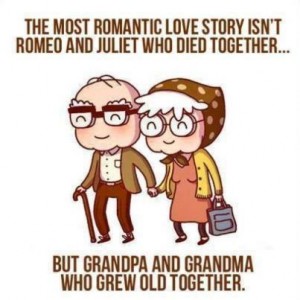 1) They literally have a lifetime of experience to share. A key ingredient to good storytelling is experience. That’s why when writers haven’t been through certain situations firsthand, they research accounts from people who have. Fortunately, some of us are lucky enough to have excellent sources right in our own families, and those are usually the people who have been through the most in life. Grandparents have decades of experience to share, and that adds up to a lifetime of interesting stories (to cite examples from my family, my maternal grandmother was a ballet dancer and my late paternal grandfather was a WWII veteran). You may have a goldmine of creative ideas among your own relatives, so why wouldn’t you want to take advantage of that?
1) They literally have a lifetime of experience to share. A key ingredient to good storytelling is experience. That’s why when writers haven’t been through certain situations firsthand, they research accounts from people who have. Fortunately, some of us are lucky enough to have excellent sources right in our own families, and those are usually the people who have been through the most in life. Grandparents have decades of experience to share, and that adds up to a lifetime of interesting stories (to cite examples from my family, my maternal grandmother was a ballet dancer and my late paternal grandfather was a WWII veteran). You may have a goldmine of creative ideas among your own relatives, so why wouldn’t you want to take advantage of that?
2) They’re living witnesses to how quickly times change. “When I was your age” seems to be a favorite phrase of many elders, and while young people have a tendency to take it for granted, it’s definitely one of those sentence starters that shouldn’t be ignored. History has never changed at such an accelerated pace as it has in the last couple of centuries, to the point where there are references that only people who grew up in a specific decade will understand (I myself am one of the “’90s kids”). That’s why the longer someone has lived, the more they can testify to how quickly times change. So once in a while, stop and listen to what your grandparents have to say about how the world was when they were young. You’re bound to learn about realities you never even imagined!
3) Their stories come with valuable advice. The best stories are those with lessons that can be applied to real life, and grandparents are full of wisdom just waiting to be imparted. Even if they aren’t applicable to your writing, you’re still likely to find a good moral or two by which to live your life. On top of enlightening you about the past, your grandparents can also teach you how to make the most of your future!
4) They’re comfortable with their audience. Isn’t it wonderful when a storyteller is so close with their audience that there are no inhibitions when it comes to sharing a tale? This seems to happen most frequently among family members. Elders often seem eager to pass their knowledge on to younger generations, and anyone patient enough to listen will likely find that this makes for some pretty good storytelling. Grandchildren, remember: if nothing else, you can always appreciate the joy your grandparents feel when telling you their stories!
5) They tell their stories with love! If there’s one thing grandparents have plenty to give, it’s unconditional love! All the stories and wisdom they share with their grandchildren are told with good intentions; they want their loved ones to learn as much as possible about life and to succeed in the world. You should always respect your elders, but especially your grandparents. If they enjoy talking to you and spend hours telling you stories, it’s because they love you!
Are your grandparents still around? Do (or did) you enjoy listening to their stories? What have you learned from them?
by Naomi L. | June 11, 2014 | Blog, Creative Writing |
English is a complex language, as many of its non-native speakers are well aware. Among the several confusing aspects of its grammar is the issue of plural forms. While those who grew up speaking English tend to take them for granted, I know several people still learning the language who find it odd that “houses” can be infested with “mice” or that North America has “moose” and “geese”. Most unusual plural forms are common knowledge to us, but even native English speakers can be thrown off by some lesser known plural forms.
Just for fun, here are three plural forms that are uncommonly known to be correct. Enjoy, and be careful not to get them wrong!
1) Fishes
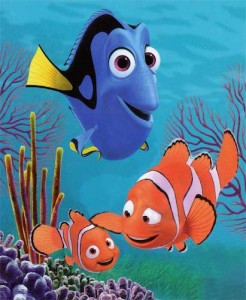
There are three fish in this picture, but only two fishes! (Finding Nemo, 2003)
This may be my favorite uncommon plural word because it’s one I see all the time in my field of study. As a Marine Biology student, I’m constantly reading papers and book chapters containing the keyword “fishes”, and I’d be lying if I said I didn’t feel smart for knowing why this plural form of “fish” is correct.
We were taught as children that the plural of “fish” is the same as its singular form, while fewer of us have been exposed to its other plural form in scientific contexts. But here’s the catch (no pun intended): “fishes” is used to indicate multiple kinds of fish (as in “Fishes of the Caribbean”), while “fish” is used to indicate multiple individual fish (note that “fishes” was once used in this sense too, but has since fallen into disuse).
So yes, you’ll probably still be using “fish” most of the time, but at least you now know why the famous phrase “sleeping with the fishes” isn’t entirely wrong!
2) Octopuses
I bet you’ve gone most of your life thinking that the plural form of “octopus” is “octopi”. Don’t worry; so have I. When I was a kid, I had a Math book titled “How Do Octopi Eat Pizza Pie?”, and ever since, I’d been walking around thinking more than one “octopus” should be called “octopi”. Turns out, until last month, I’d thought wrong.
Similar to the previous example, we were taught at a young age to follow a specific rule when creating the plural form of certain words, but without really understanding why. We just know that several words ending in -us are pluralized by replacing the last two letters with -i. However, this mostly applies to some words derived from Latin, such as “cactus” (which, despite being Greek in origin, counts as an example of botanical Latin). “Octopus”, on the other hand, is etymologically Greek, and thus does not obey this rule. This is why “cacti” is correct (though “cactuses” is also acceptable), while “octopi” is not. Instead, pluralize “octopus” as “octopuses” or “octopodes”, and if anyone ever tries to correct you, you’ll know how to explain why your way is correct!
3) Dwarfs
Fans of The Lord of the Rings and other fantasy stories by J.R.R. Tolkien may be overly familiar with the word “dwarves”. What many may not realize, though, is that this is actually a newer plural form of “dwarf” that was popularized by the author (though it seems to have originated elsewhere). The standard plural form is actually “dwarfs”, and is the correct spelling for most contexts. However, “dwarves” seems to have become increasingly acceptable in fantasy fiction to indicate multiple individuals of a race of little people, so it shouldn’t be disregarded completely. The important thing is to know the difference, especially if you write a lot in the fantasy genre. Whether you’re referring to “Snow White and the Seven Dwarfs” or the “elves” and “dwarves” of Middle-earth, make sure you know when to use which form!
What are your thoughts on these unusual plural forms? Any more you would add to this list?
by Naomi L. | May 14, 2014 | Blog, Creative Writing |
After a whole series of long posts, I think now is a good time to unwind with a short one. Lately I’ve written quite a bit of poetry, and I find it’s a format that I really enjoy working with. So continuing on the same line as my flash fiction post, here’s a brief list of reasons I believe poetry is an art that every writer should try at least once. Note that this list is based entirely on personal experience, so if you disagree with any points or would like to add some of your own, feel free to weigh in! Enjoy!
Why Writing Poetry is Good for You
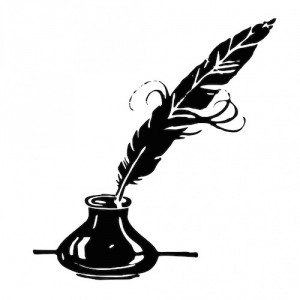 1) It’s a form of free writing. True, all creative writing can be considered “free”, but even the simplest stories still need to follow a basic structure to be complete. Poems, however, don’t really come with universal rules. They can cover any subject matter. They don’t have to tell a story. They don’t have to rhyme. They don’t even have to make sense! All you need is a simple idea, and your imagination is free to run with it until it becomes a full piece. It’s wonderfully liberating to write without the restrictions of prose. And who knows? You may just learn something about yourself in the process. I usually do.
1) It’s a form of free writing. True, all creative writing can be considered “free”, but even the simplest stories still need to follow a basic structure to be complete. Poems, however, don’t really come with universal rules. They can cover any subject matter. They don’t have to tell a story. They don’t have to rhyme. They don’t even have to make sense! All you need is a simple idea, and your imagination is free to run with it until it becomes a full piece. It’s wonderfully liberating to write without the restrictions of prose. And who knows? You may just learn something about yourself in the process. I usually do.
2) It’s a gateway for inspiration. Sometimes writing a short piece without inhibitions is just what you need to find inspiration for a longer work like a short story or a novel. Creating poetry has given me extra motivation for stories, and some ideas have even been converted from the former to the latter format during writing. Though many of my poems are written just for fun, they also help me break creative blocks and open the door to new and greater ideas, even if (or especially when) that was never my intention. Take note: if you often suffer from writer’s block, a good poem or two may be the spark that will get you back on track.
3) It’s an emotional release. This is one of the main reasons I write poetry. Sometimes I have so many emotions built up inside me that I just have to set them free somehow, and poetry is usually a great release for those feelings. More than once, I’ve managed to relieve negative emotions by turning them into a poem. So if you’re ever feeling down, try using your feelings as poetic inspiration. It may not solve your problem, but at least you may feel better afterwards.
4) It exercises the mind. I’m sure many prose writers who try their hand at poetry find that it’s not as easy as it may seem. Writing poems is quite different from writing stories, and that means it requires a different way of thinking. You have to train your mind to get into a rhythm, to feel the flow of the words and see the imagery in the lines. Stanza poems can be especially tricky because of the added challenge of rhyme, but even free verse poetry takes real skill to write well. If poetry isn’t your niche, you may enjoy it for the challenge of trying something different, and for the lessons it can teach you to help improve your writing in your regular format.
5) It’s relaxing. If for no other reason, write poetry because it feels good! Poems can be a lot of fun to write, especially when you don’t put pressure on yourself to make them perfect. If you like poetry simply for the beautiful art it is, then write for the fulfillment it brings you, and let the above reasons naturally make it all the more enjoyable. Have fun!
What about you? Do you write poetry? If so, why do (or don’t) you enjoy it?
by Naomi L. | January 8, 2014 | Blog, Creative Writing |
Recently, I was tagged over on Rachel Rose Teferet’s blog, in a post about the top ten books that have been influential to her as a writer. To keep the chain moving forward, I’m now sharing my own Top Ten list. So in no particular order, here are the books that have helped me evolve as a writer (and as a person). Note that I had to omit some excellent titles, but there were so many choices that it was hard to come up with just ten. Also, I’m counting series as one item each! Enjoy!
 1) The Bible
1) The Bible
OK, maybe I borrowed an idea from Rachel for how to start my list. Or maybe I just couldn’t lead with any other book. You decide. Either way, the Bible has been an important resource to me, mostly for its abundance of lessons that have helped me and my family through some trying times in our lives. Though I don’t like to think of myself as a religious person (if anything, I prefer the term “spiritual”), the Bible is a special book that will always hold a place on my shelf.
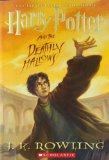 2) Harry Potter, by J.K. Rowling
2) Harry Potter, by J.K. Rowling
This is probably the most important book series of my childhood. Being part of the “Potter generation”, I had the privilege of growing up with this wonderful story, reading each new novel shortly after it was released. With its excellent narration, detailed plot and intriguing characters, the Harry Potter books taught me almost everything I know about storytelling, and I’ll always treasure them as the books that kept me hooked on fantasy for life.
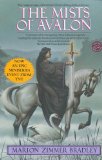 3) The Mists of Avalon, by Marion Zimmer Bradley
3) The Mists of Avalon, by Marion Zimmer Bradley
If Harry Potter was a big part of my childhood, The Mists of Avalon was a big part of my adolescence. This Arthurian fantasy saga introduced me to mature themes such as feminism and religious intolerance, and for that, it was a major step in my development as a writer of more advanced fiction.
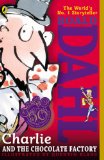 4) Charlie and the Chocolate Factory, by Roald Dahl
4) Charlie and the Chocolate Factory, by Roald Dahl
This was the book that first inspired me to become a writer. After reading Roald Dahl’s enchanting tale about young Charlie and his wild adventures through Wonka’s magical chocolate factory, I knew that creating fantasy stories of my own was something I wanted to do for the rest of my life.
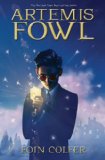 5) Artemis Fowl, by Eoin Colfer
5) Artemis Fowl, by Eoin Colfer
I started reading this series around the same time that I was reading Harry Potter, and I probably loved it just as much. Written by an Irish author, Artemis Fowl never failed to bring a humorous twist to the fantastic adventures about a boy genius and his interactions with the technologically advanced Fairy People. They were also the books that introduced me to “science fantasy”, a genre mixing elements of science fiction and fantasy. What could be better?
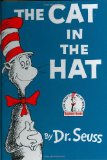 6) The Cat in the Hat, by Dr. Seuss
6) The Cat in the Hat, by Dr. Seuss
It may seem like an odd choice, but I added this children’s book to my list because it was one of the first books that I could ever remember reading by myself. By the time I started learning how to read, we had a huge collection of Dr. Seuss stories, and The Cat in the Hat was one that I always loved reading with my mother. Having been introduced to literature with Seuss’s fun rhymes and memorable characters, it’s no wonder I developed a love of books at such a young age!
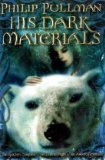 7) The Golden Compass, by Philip Pullman
7) The Golden Compass, by Philip Pullman
I admit, I didn’t start reading the His Dark Materials trilogy until after the movie came out, but I’m glad I did. Though the books are interesting enough for the author’s (often thinly veiled) metaphors criticizing religious organizations, I appreciated the story mostly for its fantasy elements, especially the creative idea of a parallel universe where human souls exist as tangible animal spirits. If anything, The Golden Compass and its sequels have taught me a lot about symbolism, which is one of my favorite parts about writing fiction.
 8) Romeo & Juliet, by William Shakespeare
8) Romeo & Juliet, by William Shakespeare
How could I possibly leave this story out? Most of my favorite romantic stories (as much to read as to write) are about forbidden love, and Romeo & Juliet is certainly the epitome of this plot type. This was the first Shakespearean play I ever read, and after growing accustomed to the style of writing, I quickly fell in love with his poetry. I think what I like most about this story is how it can be interpreted in so many different ways, and how a lot of its elements seem to be relevant even today. Why else would it still be so popular after 400 years?
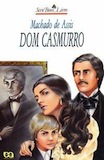 9) Dom Casmurro, by Machado de Assis
9) Dom Casmurro, by Machado de Assis
Why not throw a foreign language book into the mix? Though I had to read several books in Portuguese for school, this was one of the few that I actually liked. Written in the 19th century, Dom Casmurro is a realist story told from the perspective of a jealous man who suspects his wife of having been unfaithful. The main reason I find this book so interesting is because it’s an excellent example of the “unreliable narrator”, as it’s never made clear in the story whether his wife actually cheated on him or it was all just in his head. The author’s achievement of sparking heavy debates over the story to this day make this novel a classic of Brazilian literature.
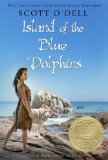 10) Island of the Blue Dolphins, by Scott O’Dell
10) Island of the Blue Dolphins, by Scott O’Dell
This book was recommended to me by my mother, who also read it when she was younger. I enjoyed reading about Karana’s adventures living alone on an island for years, and her story helped me see themes like social interaction and survivalism in a new light. Looking back, I realize this was one of the first examples I’d seen of a strong female protagonist, and I’ve since been inspired to create heroines who are equally independent and profound in character.
Now to move the chain forward, I’m tagging Vanessa Levin-Pompetzki and Inion N. Mathair. What are your top ten books?
 1) How The Grinch Stole Christmas! by Dr. Seuss
1) How The Grinch Stole Christmas! by Dr. Seuss 2) A Christmas Carol by Charles Dickens
2) A Christmas Carol by Charles Dickens Officially titled The Nutcracker and the Mouse King, the German fairy tale of the toy prince and the little girl who loved him is one that I remember fondly from my childhood, as my mom would read it to us when we were little. Aside from an adapted children’s book, we also had a couple of Nutcracker figures that we’d put out every December with the rest of our Christmas decorations (coincidentally, one of them eventually got a broken jaw, just like the Nutcracker in the story). Though there may not be much to tie this story to the season other than the fact that it takes place around Christmas, I still like to keep The Nutcracker on my list of holiday classics!
Officially titled The Nutcracker and the Mouse King, the German fairy tale of the toy prince and the little girl who loved him is one that I remember fondly from my childhood, as my mom would read it to us when we were little. Aside from an adapted children’s book, we also had a couple of Nutcracker figures that we’d put out every December with the rest of our Christmas decorations (coincidentally, one of them eventually got a broken jaw, just like the Nutcracker in the story). Though there may not be much to tie this story to the season other than the fact that it takes place around Christmas, I still like to keep The Nutcracker on my list of holiday classics! 4) Rudolph the Red-Nosed Reindeer by Robert Lewis May
4) Rudolph the Red-Nosed Reindeer by Robert Lewis May

 1)
1) 
 1)
1) 










Recent Comments